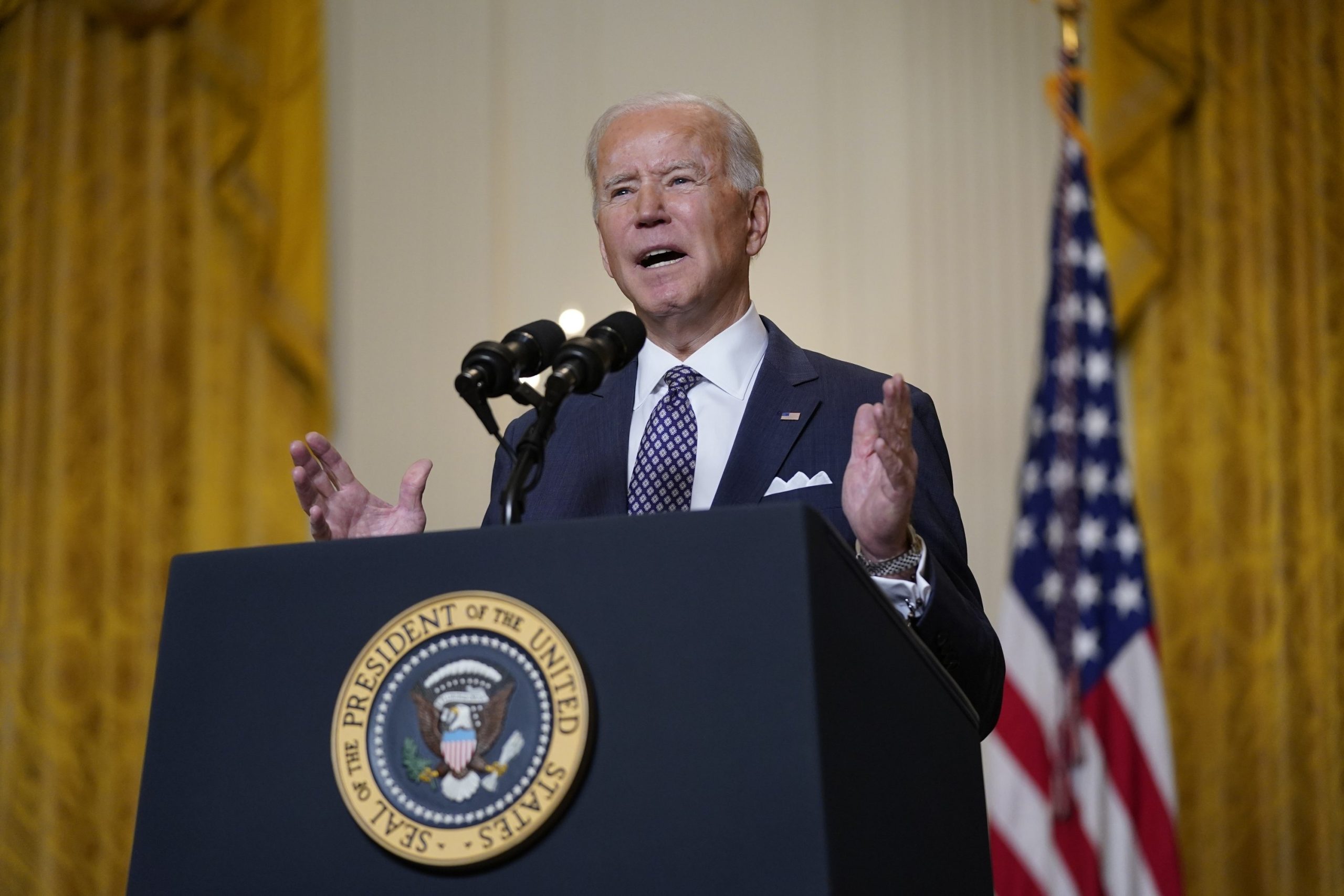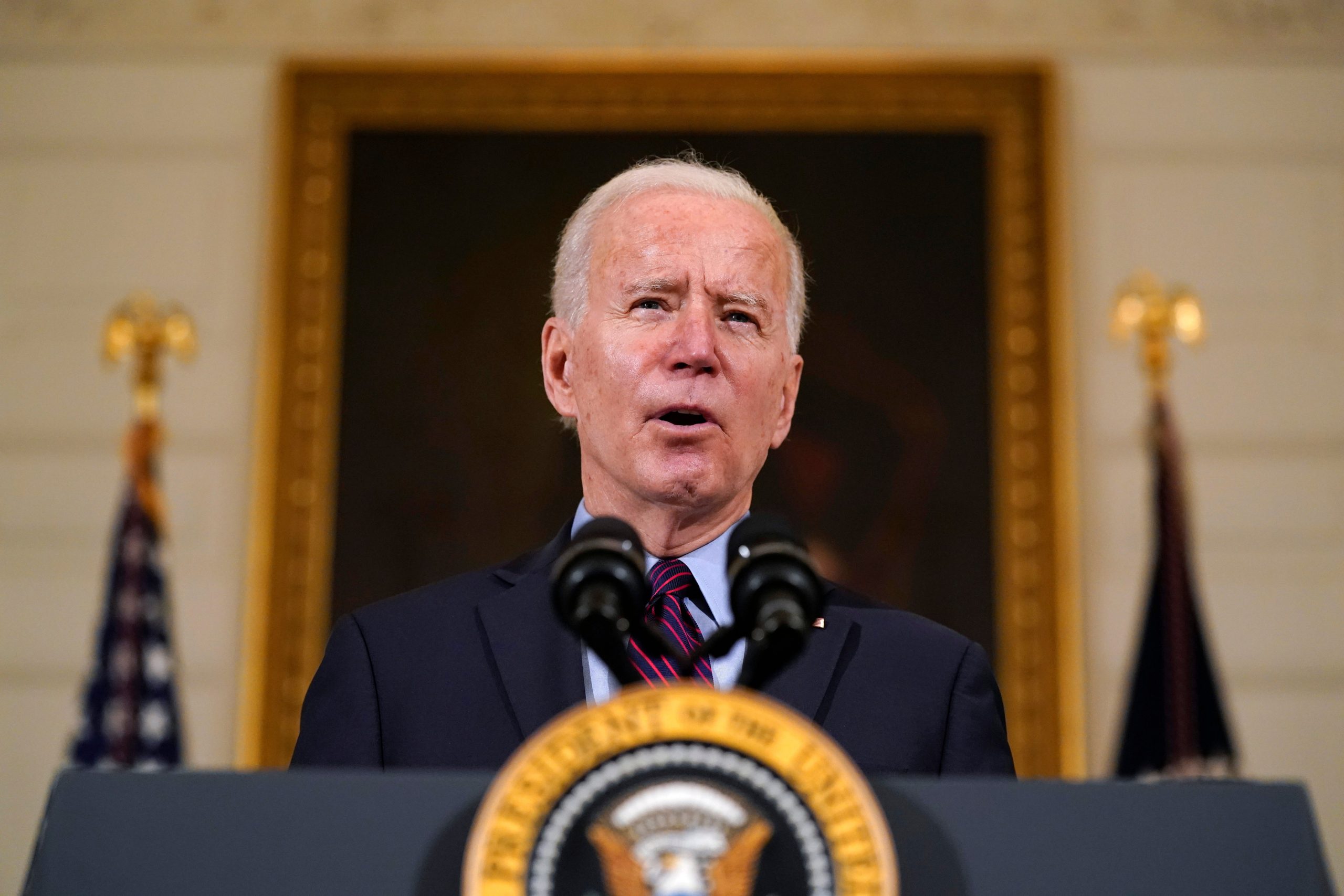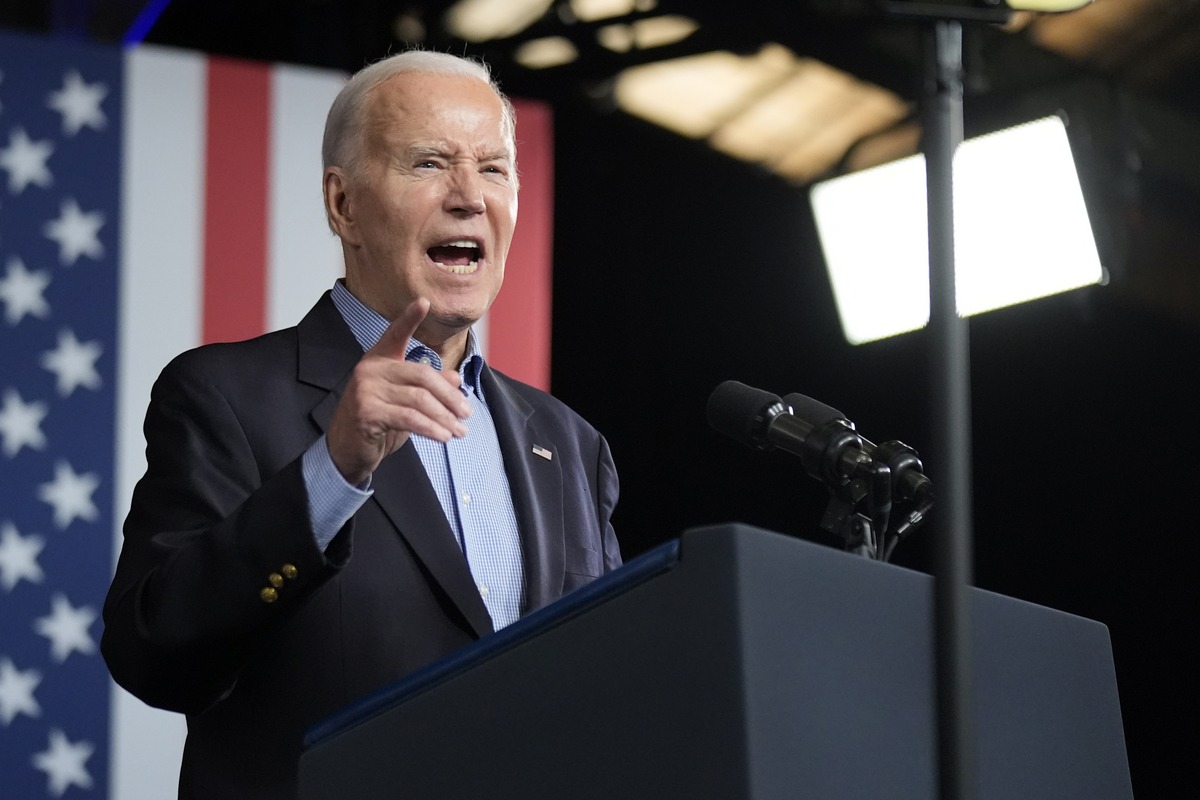President Biden addressed local leaders on Monday, promising to deliver for both “red and blue communities” as he prepares for a tough reelection battle against former President Donald Trump.
Speaking at a National League of Cities in Washington conference, Biden highlighted his legislative victories and called on Capitol Hill Republicans to pass a bipartisan border security bill.
In his speech, Biden positioned himself as leading a “great comeback story” for the United States, citing the progress made in recovering from the pandemic.

Biden (Credits: AP News)
He touted the benefits of his bipartisan infrastructure law, including job creation and infrastructure projects across the country. Biden emphasized that this spending would keep jobs in America and highlighted efforts to expand broadband internet access and maintain clean drinking water.
Despite these achievements, Biden acknowledged challenges such as unchecked migration at the southern border and stubborn inflation.
He addressed the cost of housing, proposing a $400-per-month tax credit for families seeking their first home or looking to “trade up” for more space. Biden also encouraged cities to convert empty office space and hotels into housing.
However, Biden faced criticism from House Ways and Means Committee Chairman Jason Smith, a Missouri Republican, who argued that the tax credit proposal would not lower mortgage costs and could lead to another financial crisis.

Biden (Credits: The Independent)
On immigration, Biden urged Congress to pass the bipartisan border security bill, which he said would address illegal migrant crossings. He expressed confidence that the House and Senate have the votes to pass the bill if it is brought to a vote despite political obstacles.
Polls indicate a challenging reelection campaign for Biden, with some showing him tied or losing to Trump in a fall rematch. Concerns about Biden’s age, 81, have been raised, but he joked about it at the conference, quipping that he “wasn’t at the first meeting” of the National League of Cities 100 years ago.
Biden’s speech aimed to appeal to a broad audience. It emphasized his administration’s accomplishments while acknowledging ongoing challenges and seeking support for his policy proposals.
























